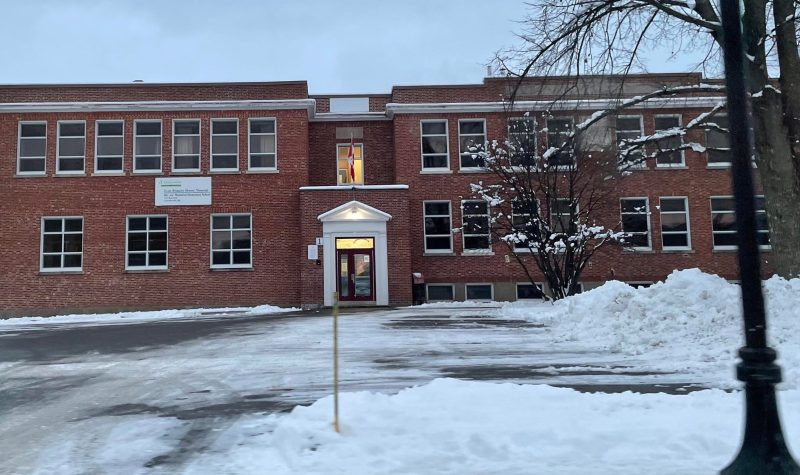The Eastern Townships School Board (ETSB) is still looking for qualified educators and support staff as Quebec schools face challenges with teaching and staffing shortages.
Chairperson for the ETSB Michael Murray told CIDI that while the school board has been able to fill its vacant teaching positions, it is still looking for special education technicians and classroom aides for students with learning disabilities.
“The challenge we are facing is finding enough of the various categories of support staff who are as important to the well-being and education of the students as the teachers. I’m talking about qualified people with certificates at the CEGEP level for special education technician and handicap student attendant,” explained Murray. “I think we have over 30 still open. Of course, interviews are ongoing, recruiting is ongoing, and we’re hoping to be able to fill those before not too long, but that seems to be an area of critical shortage.”
To help address these vacancies within the education system, Murray mentioned that the ETSB has formed a consortium with the eight other English school boards in the province and they have been advertising the numerous employment opportunities within and outside of Quebec.
“In fact, we have advertised for teachers in Europe, certain parts of the United States, amongst other places. We’re trying to expand our reach in that respect. Through chatting with [media], we are trying to encourage people that might be looking for a career to take the training at a CEGEP for those positions I mentioned and to follow that career of an educator but not necessarily a teacher,” explained Murray.
On the challenge in attracting and retaining qualified teachers and educators in the classrooms in recent years, Murray noted that the start of the COVID-19 pandemic and the extra “burden” it placed on these individuals is a major factor.
“During COVID, a lot of teachers approaching the retirement or that were qualified for retirement were deciding to leave the profession. Also, some young teachers that started at that very difficult time when all of the burden of responding to the requirements that the government and the health care services, all of those burdens were downloaded onto teachers,” he said.
“Very front line in terms of facing the risks to their health and in enforcing the requirements for masking, cleaning, and that sort of thing," he added. "It added an extra burden that really caused some burnout, some early retirement, and I think some disenchantment with the fact that there’s no concern for how that was going to affect the profession and careers.”
Murray added that the government also “dropped the ball” when it didn’t increase funding to expand university education programs to help replace the teachers leaving the profession and with the adoption of secularism law Bill 21, which bans teachers and educators from wearing religious symbols when teaching in public schools. English schools, however, are exempt from Bill 21.
“There are a lot of people who are aware of all of the discussions of the difficulties, the burdens, and the stresses of being a teacher and that might be discouraging some young people from choosing that as a career, which is really rather sad. It is a very fulfilling and satisfying career, with excellent fringe benefits and salary. We think it has a lot to offer,” expressed Murray.
Steven Le Sueur, president of the Quebec Provincial Association of Teachers (QPAT), said that the shortage of teachers and educators in Quebec should not come as a surprise. The QPAT is the union that represents teachers working under Quebec's English school boards.
“This is an ongoing issue. I believe we’ve been talking about this for the last 20 years with the government, that we have to make our profession attractive, and they just haven’t moved on it,” emphasized Le Sueur.
The QPAT has been in negotiations with the provincial government to improve the working conditions for teachers in Quebec’s English schools since January, giving it the opportunity to “not to fix it all together, but at least make a start to make it better for everybody, including our new recruits,” said Le Sueur.
“The government isn’t really moving much at the negotiation tables. We would like them to be a little bit more serious. We’ve been negotiating since January and it hasn’t gone anywhere, so hopefully in the near future things move a little bit more,” mentioned Le Sueur.
According to Le Sueur, there is a pattern that is emerging with new teachers leaving early on in their careers.
“Twenty-five per cent of our new teachers leave before they finish their fifth year, so there’s some issues to be fixed,” noted Le Sueur.
Le Sueur narrows these issues down to classroom composition, renumeration, and a workload that is only growing to be more heavy with the various student needs entering the classroom.
“We need a reduced workload for sure, that will help. We need more consultation, more time to talk amongst the teams, more support. They’re lacking personal as well, there is a shortage across the education system,” he explained. “But we need more support in the classroom with our special needs and at risk kids. Of course, renumeration is there. They’ve offered nine per cent over five years but with our economy it is probably not enough, definitely not enough.”
As a result of the stagnant negotiations with the Quebec government, there is “common-front” demonstration planned for Sept. 23 at 1 p.m. in Montreal at Jeanne-Mance Park. Le Sueur encourages anyone who is interested to show up and show their support for the cause.
“It’s all about getting our government to, again, make our profession more attractive. We’re in a crisis now and it’s a long time coming unfortunately,” Le Sueur highlighted.
Listen to the full interview with Murray and Le Sueur below:


